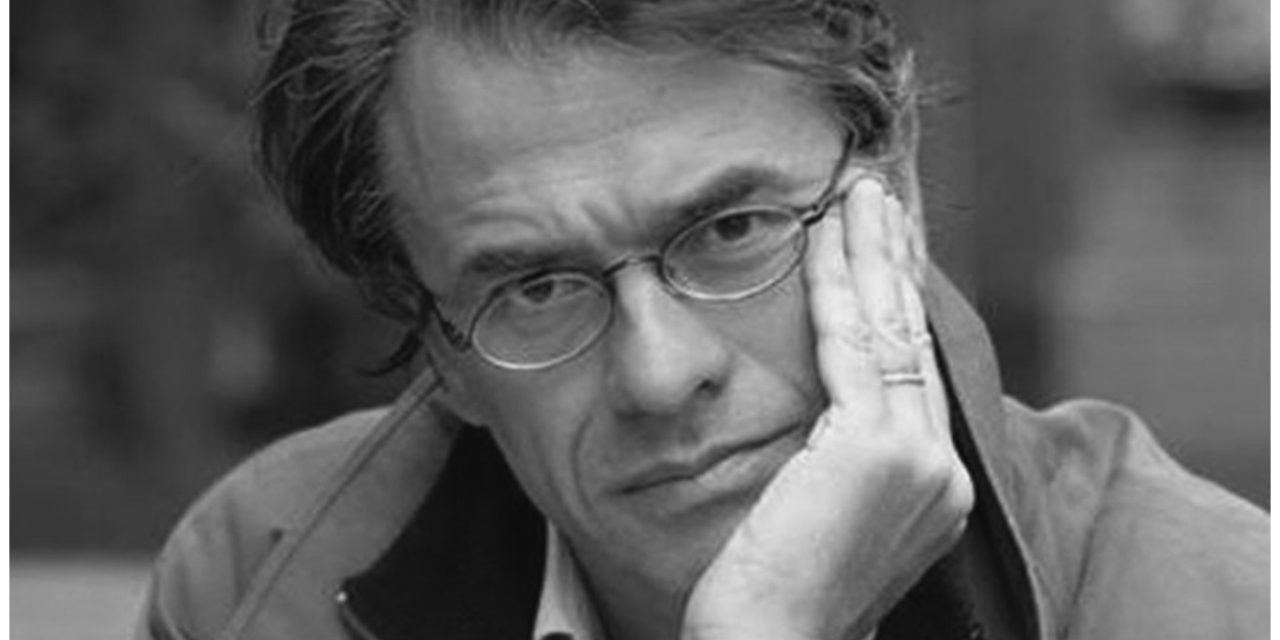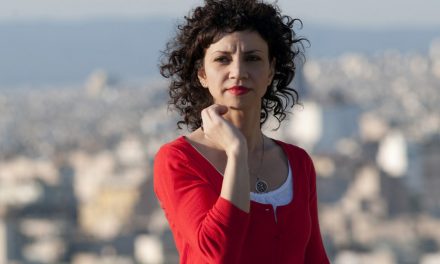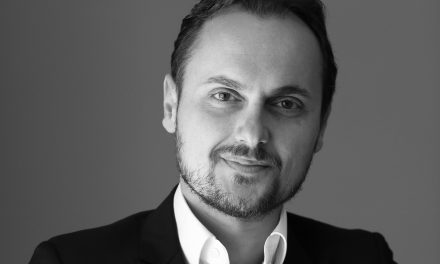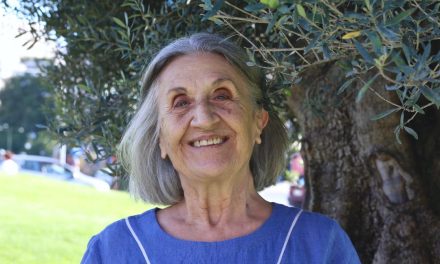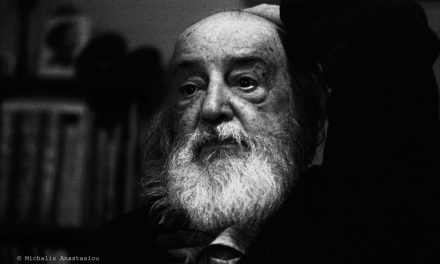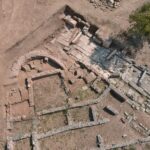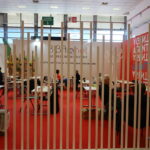Haris Vlavianos (Rome, 1957) studied Economics and Philosophy at the University of Bristol, as well as Politics and History at the University of Oxford. His doctoral thesis, entitled Greece 1941-1949: From Resistance to Civil War, was published by Macmillan in 1992.
He has published eleven collections of poetry, the most recent being Vacation in Reality (Patakis, 2009) [won the “Diavazo” Poetry Prize] and Sonnets of Despair (Patakis, 2011) [short-listed for the National Poetry Prize]. He has also published a collection of thoughts and aphorisms on poetry and poetics entitled The Other Place (Nefeli, 1994) and a book of essays entitled Does Poetry Matter?: Thoughts on the Uselessness of an Art (Polis, 2007), as well a book with Haikus, entitled The History of Western Philosophy in 100 Haikus: From the Presocratics to Derrida (Patakis, 2011). In 2013 he published an autobiography entitled Blood into Water (Patakis). His latest book, Hitler’s Secret Diary, was published in 2016 (Patakis). He has translated into Greek, the works of well-known writers such as Walt Whitman, Ezra Pound, John Ashbery, Wallace Stevens, William Blake, Carlo Goldoni, Fernando Pessoa, E. E. Cummings, T.S. Eliot, Zbigniew Herbert, Michael Longley, Anne Carson, etc.
He is the editor of the literary Greek journal Ποιητική [Poetics], considered to be the most prestigious literary journal in Greece. His work has been translated into English, French, German, Dutch, Swedish, Italian, Spanish, Portuguese, Bulgarian, Albanian and Croatian, and has appeared in book form and in numerous European and American journals and anthologies. For his contribution in promoting Italian literature in Greece, through his translations and essays, the President of the Italian Republic bestowed upon him the title of “Cavaliere of the Arts and Letters”.
Haris Vlavianos spoke to Reading Greece* about his latest book Hitler’s Secret Diary explaining that he decided to “focus on those thirteen months that Hitler went to jail after the failed ‘Beer-Hall Putsch’”, because during this crucial period Hitler “was transformed from being the leader of a small party, to a political thinker that decided to put his ideas on paper and offer them to the German public as a ‘new credo’”. He notes that, “in studying Hitler, I also had to study the history and culture of Germany” as Hitler was a by-product of a specific era and a specific country, while he comments on the “rise of extreme ideologies and leaders in many countries” around the world.
As for his poetic work, he adds that “a central theme in many of my poems is History and how individual histories weave into the greater patterns of History”, and explains that he is always “between languages and cultures”, which forces him “not to take language for granted”. He concludes with the history and content of Poetics, while also commenting on the place of poetry and of young poets nowadays.
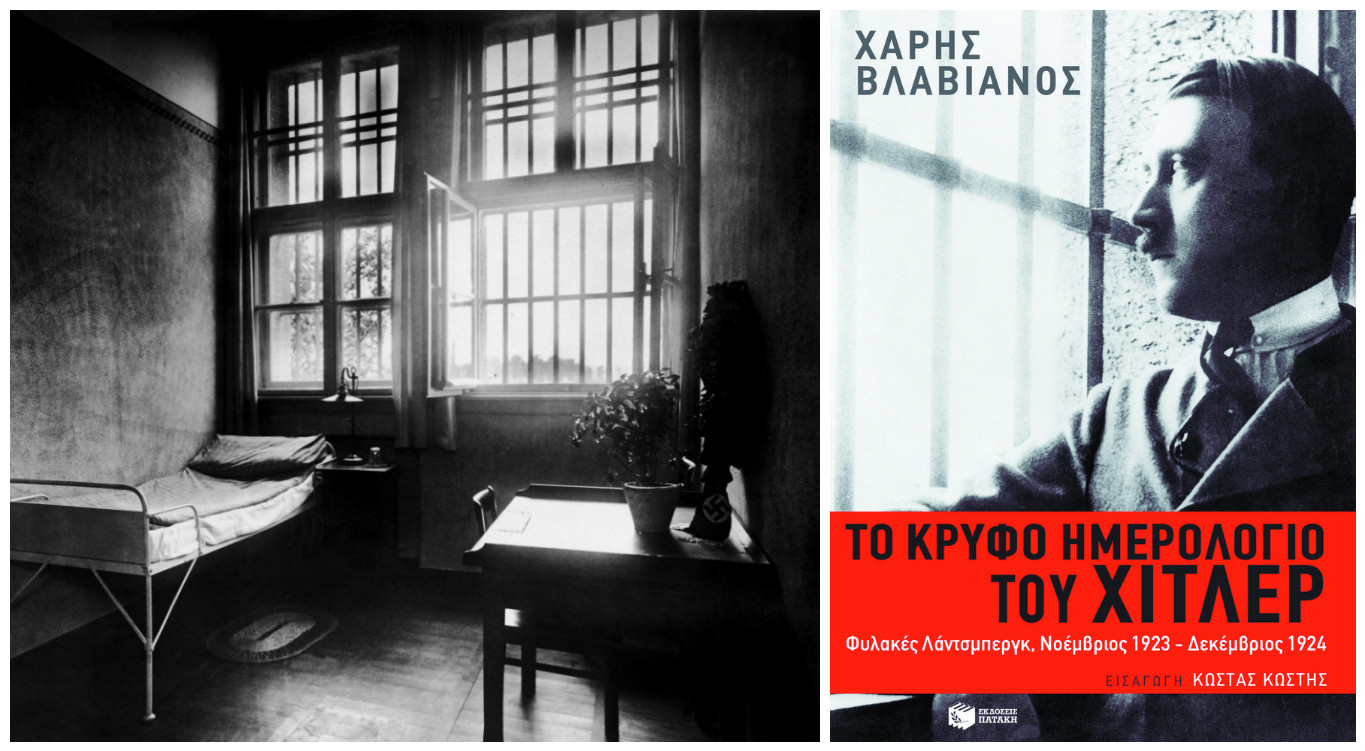
How was the idea to write a book on Hitler born? How demanding was it to write a book on such a notorious historical figure of global caliber?
The idea was born long ago when I was a studying History and Politics at the University of Oxford. I was very fortunate to be taught by some renowned professors whose expertise was the period between the two World Wars. I studied both the history of Nazism and Stalinism, so the “Hitler phenomenon” preoccupied me from those early days. In fact, when I was living in England, a great scandal broke out relating to some “Hitler’s diaries”, which proved of course to be fake. There was this German “art-dealer” called Konrad Kujau, who had sold these fake diaries to Stern magazine, which was about to publish them, when a chemical analysis of the paper and the ink used revealed the truth. This man went to jail but apparently became very famous in Germany after he came out from prison. He opened a shop in Stuttgart selling Hitler’s “authentic fakes” – pictures, letters, and diaries!
Being a Historian and teaching History all these years at the American College of Greece – one of the courses I teach is about Nazism – I felt that I should write a book about Hitler. But, being also a poet, I decided not to write a history book or a critical study of Nazism, but to attempt to penetrate Hitler’s mind and write a different kind of book – a diary, Hitler’s Secret Diary. I decided to focus on those thirteen months that Hitler went to jail after the failed “Beer-Hall Putsch”. As historians know, these thirteen months that Hitler stayed in jail were very important for his development as a “thinker”. It was in jail that he came up with his plan to present himself to the German public not just as a leader of a small party but also as a political thinker. He conceived the idea of writing the notorious Mein Kampf and by the time he came out in December 1924 he had already completed the first volume, which was published a few months later. So, in my book, I follow the development of Hitler’s ideas and the gradual process by which this man was transformed, as I said, from being the leader of a small nationalistic party, to a political thinker who decided to put his ideas on paper and offer them to the German public as a “new credo”.
I also thought that the diary form would allow me to use the first person singular, which is a more powerful way to present Hitler’s mind and character. The book is, therefore, a study of his personality, a kind of ‘ψυχογράφημα’, trying to understand the way this man came to be the monster we know. But of course, at the end of it, there is always a question mark. Whatever we say about Hitler, there is always something about his personality that will escape us. In fact, doing research on the book, I read many works written by psychoanalysts. I was very disappointed as many of these studies were very simplistic and one-sided and try to place Hitler in a preconceived frame.
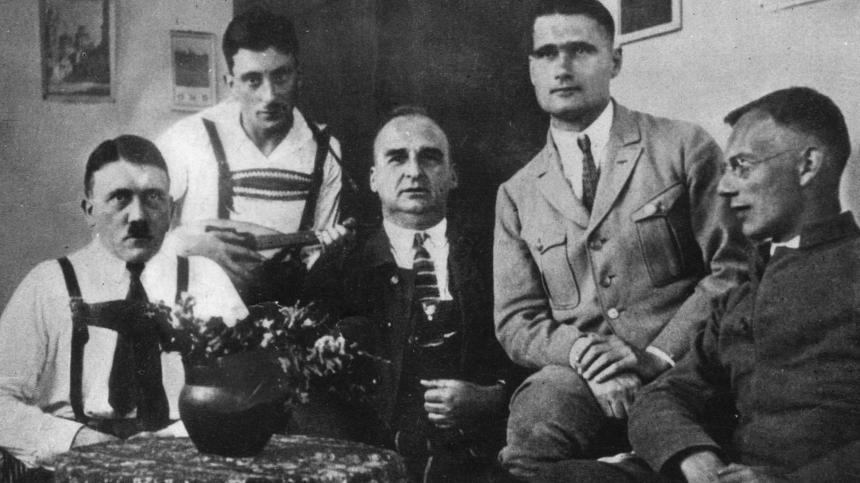
Moreover, being a poet, the diary form allowed me to be very careful with the writing of the book; the diary is just a sequence of entries and therefore I could focus on each entry separately. The narrative is broken down by these entries; in every entry I had to solve different problems. The diary, as a literary genre, is very close to my writing and I chose it because I thought that through that medium, through that genre, I could actually serve the subject of my book in a better way.
“It can be said with certainty: without Hitler, history would have been completely different” to use Ian Kershaw’s words. To what extent was Hitler a by-product of a specific era and a specific country? And, in turn, how could one man manage to seduce a whole nation?
Hitler’s Secret Diary is also a study of evil because Hitler was an evil person. As Kershaw said, without Hitler, the course of history in the 20th century would have been completely different. This man is responsible for starting World War II and he is also responsible for the Holocaust, which is one of the greatest horrors in European civilization. What makes Hitler such an evil person is the Holocaust. Very few people, except historians, study today the doings of the German Chancellor of World War I, Bethmann-Hollweg. People are used to accept war as a natural phenomenon in international relations, given the anarchic character of the system. What makes Hitler the personification of evil is his decision to exterminate the Jews.
Studying the Holocaust and Hitler’s ideas about the Jews, what comes out in my book is that anti-semitism in Germany had very deep roots, roots that can be traced back to the 19th century, or even further back, as back as Luther who called upon the Germans to burn the synagogues and get rid of the Jews. So Hitler was a product of a specific country and a specific culture and one has to wonder how Germany that gave birth to philosophers like Kant and Hegel, to composers like Bach and Beethoven, to writers like Goethe and Thomas Mann, was the country that perpetrated such a crime. Germany was one of the most cultured countries in Europe and at the same time it was responsible for one of the worse crimes in the history of humanity. So, in studying Hitler, I also had to study the history and culture of Germany.
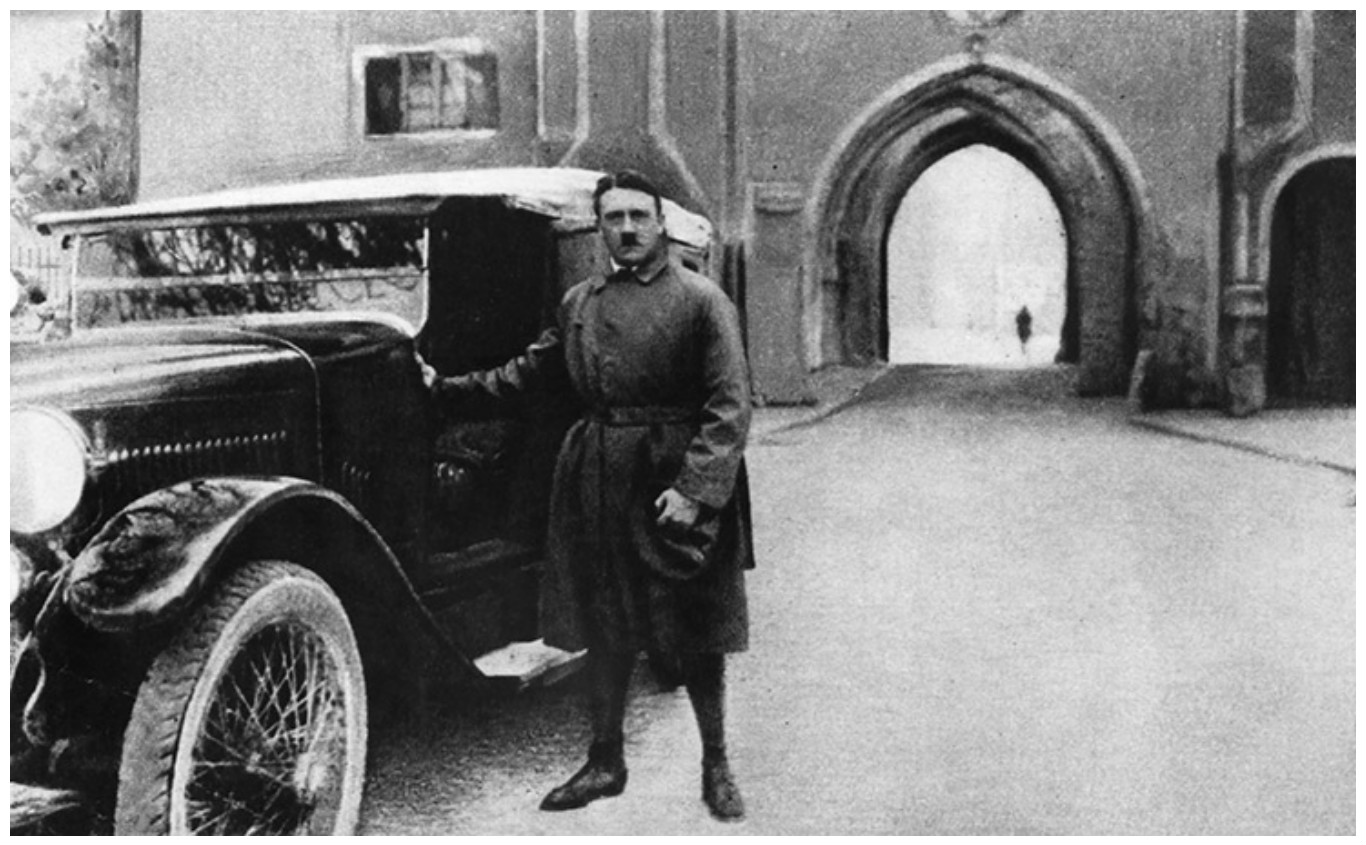
One of the great heroes of Hitler was of course Wagner, who was an extreme anti-semite. His daughter married an Englishman called Chamberlain, who became German and wrote one of the most fanatic anti-semitic books entitled, The Foundations of the 19th Century. He was also one of those persons who, just before he died, designated Hitler as the future leader of Germany. The Wagner family – the son of Wagner and his wife – were Hitler’s supporters in the period that he was in jail. It was Wagner’s son that procured the typewriter on which Mein Kampf was written. The Wagner family and other admirers of Hitler supported him all these thirteen months that he was in prison.
It is of course a big question how this man who was born in a small Austrian village, had little education, was a complete failure as an artist – he tried twice and failed to enter the Academy of Fine Arts in Vienna, who arrived in Munich in 1919, after the end of WWI, with no money, no connections, no friends, managed in very few years to become the leader of the Nazi Party and come to believe that he could actually be able to bring down the government in Berlin, He failed of course in his first attempt, but he succeeded ten years later. The “Beer-Hall Putsch” was in a way a kind of rehearsal for Hitler, and although he went to jail, he used the time to “educate” himself (in the way of course an obsessive person educates himself) and to write Mein Kampf. There was the trial in March 1924 and Hitler used the trial to appeal to the German people and to present himself as a hero, who wanted to undo the Versailles Treaty. He accused the German government of treason, of stabbing the German nation in the back, and the English and the French for all the suffering of the German people. And because in the Putsch, the second man in command was General Ludendorff, the hero of WWI, and no judge would dare put Ludendorff in jail, in the trial Hitler accepted the responsibility of the whole affair, becoming overnight the hero of all nationalistic circles in Germany.
He was very fortunate because the judge at the trial was very sympathetic and he allowed Hitler to talk for hours at an end, thus turning the trial to his advantage. All German newspapers covered the trial, and so despite the fact that the Putsch was a Munich event, suddenly the whole affair took some kind of national importance. As an indication of the status that Hitler now enjoyed, a month later on April 20th, when Hitler had his birthday – he was thirty five years old – he received so many presents that the warden of the prison had to allow Hitler to use four empty cells to put there the presents he received. So, I think this period, those thirteen months that Hitler spent in Landsberg prison, was very crucial for him, for his development and for what happened later in Germany and Europe of course.

Was it a coincidence that you decided to write a book on Hitler now that there is noted a revival of fascism both in Greece and throughout Europe? Are there parallels to be drawn between that era and today?
One of the reasons I wrote the book was of course the rise of fascism in Greece in the last years, the rise of fascism in Europe, the return to times when people begin developing again stupid conspiracy theories, targeting specific groups of people for their misfortunes, especially refugees and immigrants. When I wrote the book I could not have predicted the recent developments in the USA, but I was already witnessing the rise of extreme ideologies and leaders in many countries: Erdogan in Turkey, Putin in Russia, Marie Le Pen in France, Golden Dawn in Greece; we have seen the erecting of walls against the refugees in Hungary, in Poland; in the Austrian elections the candidate from the extreme right party almost won, which means that one out of two Austrians is a fascist-sympathizer. These are very worrying developments and I think somehow Europe is sliding back to darker times and the election of Trump in America doesn’t help at all. In fact, it is an indication that things are going to get worse.
From Somnambulations in 1983 to Hitler’s Secret Diary in 2016, what has changed and what has remained intact?
I suppose this book surprised some of my readers. I am known as a poet and a translator of poetry but if one looks carefully at my work, a central theme in many of my poems is History and how individual histories weave into the greater patterns of History. I am a poet but I have studied history and politics and I teach these subjects at the University, so obviously all my interests are reflected in what I write. My latest two books, although they are in prose, are very close to poetry. Blood into Water, a kind of autobiography, is broken down into 45 small pieces, which are very dense. In Hitler’s Secret Diary again, though a long book of 500 pages, I had to work, as I have already mentioned, every entry by itself, something that gave me a better control of language. I suppose somebody who knows my work, would identify the style of my writing in my latest two books.
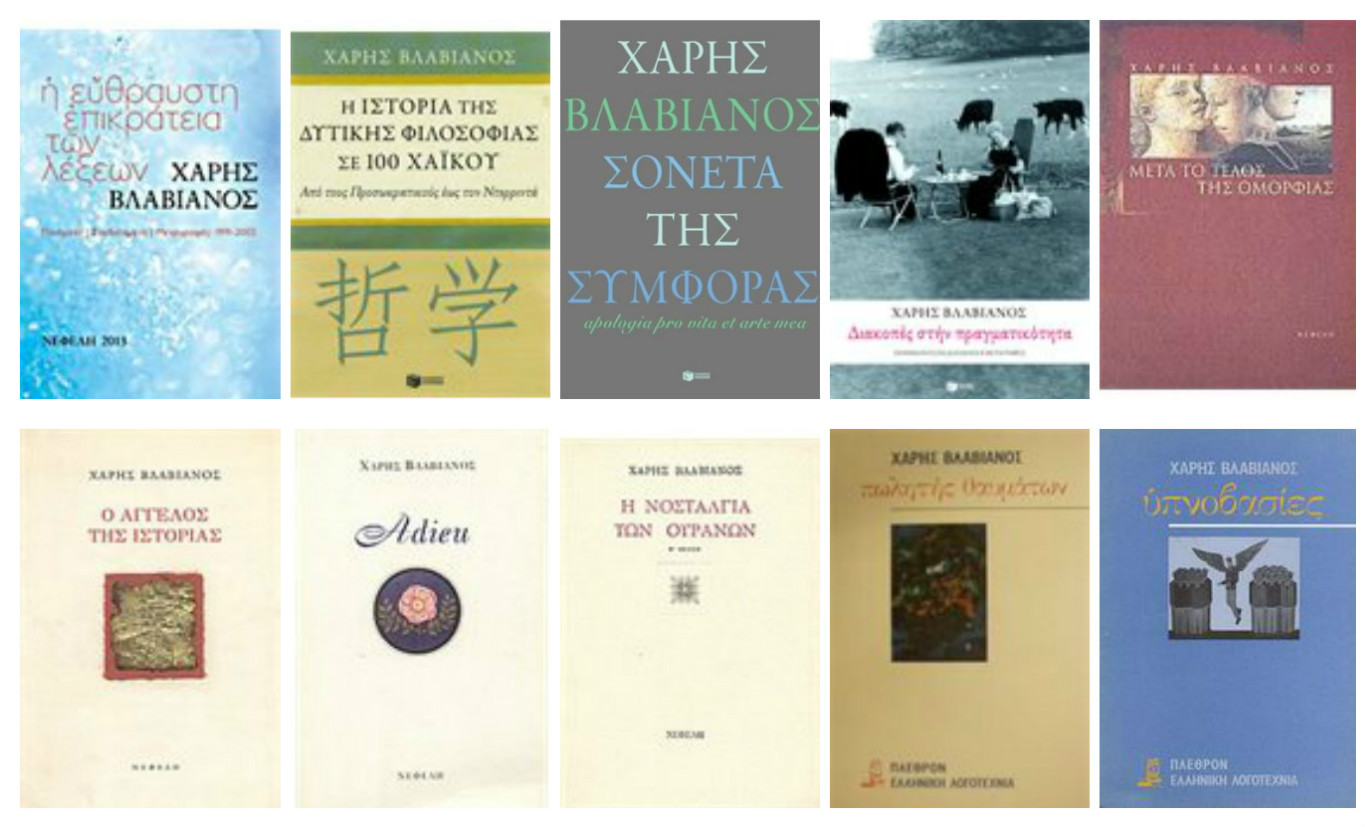
“I would say that the only and most impetuous thing that permeates my entire life is the fact that I’m always in and out of things”. Tell us more.
I studied in Oxford and those who have read Blood into Water, know that I was born in Rome and raised in Italy until I was ten. My first language was Italian. My parents divorced when I was four and my father went to Brazil so my second language was Portuguese. Then I came to Greece when I was ten, and my third language became Greek – the language that I write my poetry. And then, at the age of eighteen, I went to England, where I lived for eleven years. I studied at Bristol first, three years for my bachelor degree and then eight more years at Oxford for my Master’s degree and my Doctorate. So I am always between languages and cultures. That’s why I said I am in and out of things. I have somehow to deal with three identities. I used to think that this was a disadvantage, especially when I returned to Greece and I decided to become a Greek writer. But now I think it is a source of strength. Not taking language for granted. This is especially important when you write poetry. Not to use words easily but try to be as precise and clear as you can.
You are the editor of the Greek literary journal Ποιητική (Poetics), which is regarded as one of the most prestigious literary journals in Greece. What is the place of Poetics in an anti-poetic era? What about the new generation of Greek poets? Would you agree that there are more poets than there are poetry readers?
Poetics is a journal that was born out of a previous journal called Ποίηση [Poetry], which I published for fifteen years at “Nefeli”. It was not really a journal as such; it came out twice a year, it was 350 pages long, more like a book really. When I came back from England, there were many journals in Greece publishing literature but there was not one that published poetry exclusively and there was none that would publish long essays on poetry. I thought that there was a real need for that. I decided to create a journal that would focus only on poetry, Greek poetry (especially the poetry of the new generation), poetry in translation, essays written by poets, academics or literary theorists. So, in 1993 I started Poetry. It introduced many of the great foreign poets, critics and theorists that were unknown to Greece, such as Ashbery, Merrill, Herbert, Holub, Duffy, Saïd, Derrida, Kristeva, Todorov, Hillis Miller, Bloom, etc.
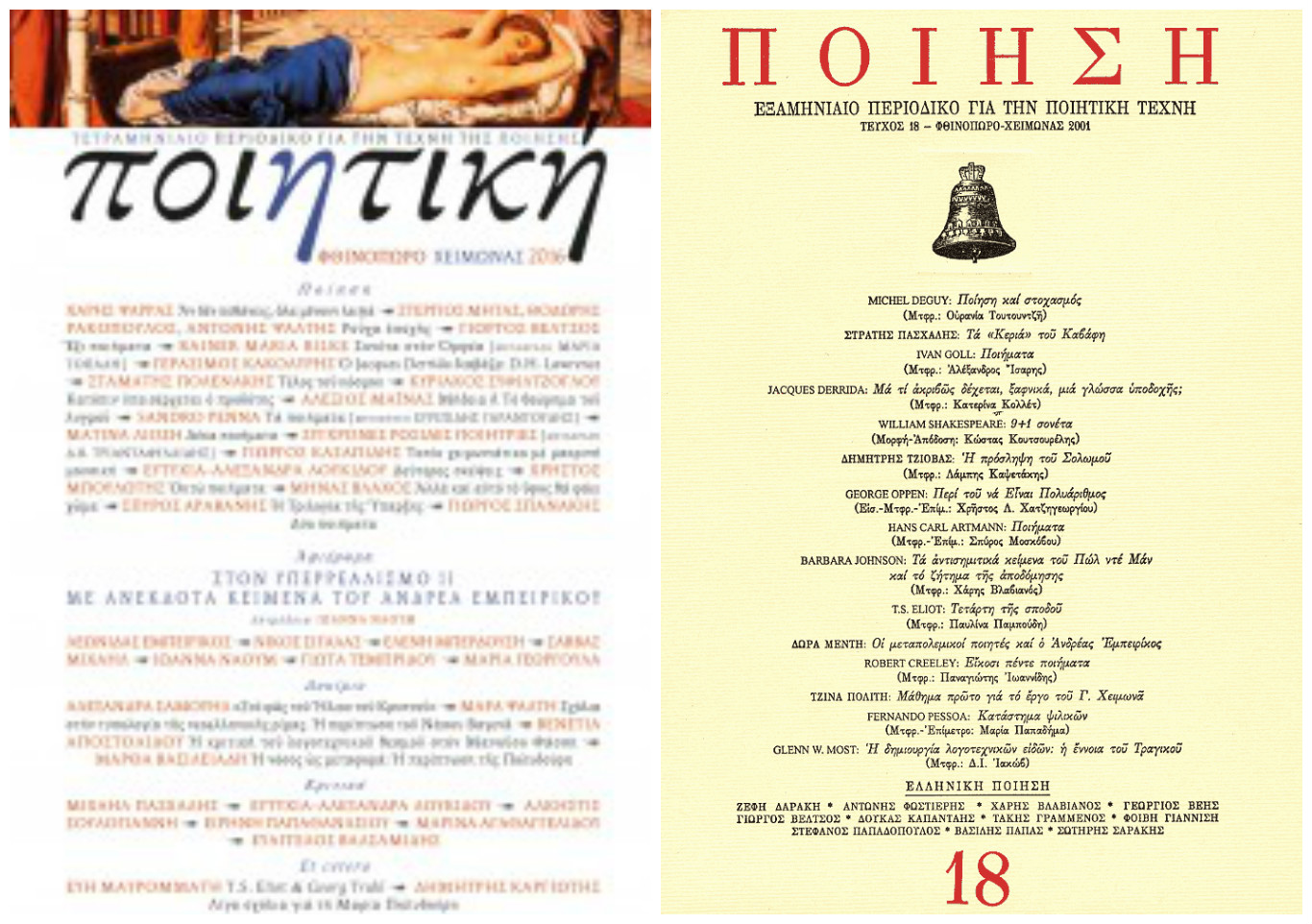
The publisher of “Nefeli” suddenly died when I had just published the 30th issue of Ποίηση, so I decided then to move to “Patakis”, and continue the project, under a slightly different name (Ποιητική) and a different layout; but the philosophy of the journal is exactly the same. The aim is to create a journal that young poets and translators feel proud to publish their work.
As to whether we have more poets than poetry readers, this is absolutely true. It is easier now to publish if you have money because you just pay the publisher and you have your book out. It’s also easier to have your poems published on the internet; anybody can create a blog and have his/her poetry uploaded there. You can put poems on facebook and you get 200-300 “likes” and then people think that this makes them a poet. Of course this is not the case. What they don’t realize is that poetry is an art. It’s not what you write or “confess”, it’s the way you write it, the way you formalize your feelings and thoughts. Therefore you have to train yourself in that. The only training you get is by reading and practicing. You have to read a lot; not only poetry but also philosophy, history, psychoanalysis, sociology, politics, economics, etc. A good writer, whether he writes poetry or fiction, is giving us a unique perspective of how he sees the world. Reading is the starting point. In a way you can paraphrase and say ‘tell me what you read and I can tell you what you are going to write’. Those who have read very few poets, will write like these poets. They don’t know other forms, other ways of shaping their material.
I think it’s because we live in times when people feel very lonely. In the old days when I started writing poetry, you could meet poets, there were places where poets met, coffee places where young poets would go and listen to what the older poets had to say. And this was the way a young person would initiate himself into writing, where the initiation ritual would actually take place. But today people are just behind screens, they are alone and they don’t know how to start. That’s why we had the flourishing of all these creative writing programs and seminars where young people come asking for advice. When I started writing, there were no creative writing programs. I would go and frequent places where I would meet Elytis, Karouzos, Vakalo, Anagnostakis and Gatsos. That doesn’t mean that you actually had to follow what they said but they often offered valuable advice. I remember that by meeting Gatsos, for example, I learned Spanish poetry from him. I knew Anglo-Saxon and Italian poetry mainly, but it was through Gatsos that I got to know some of the great Spanish writers.
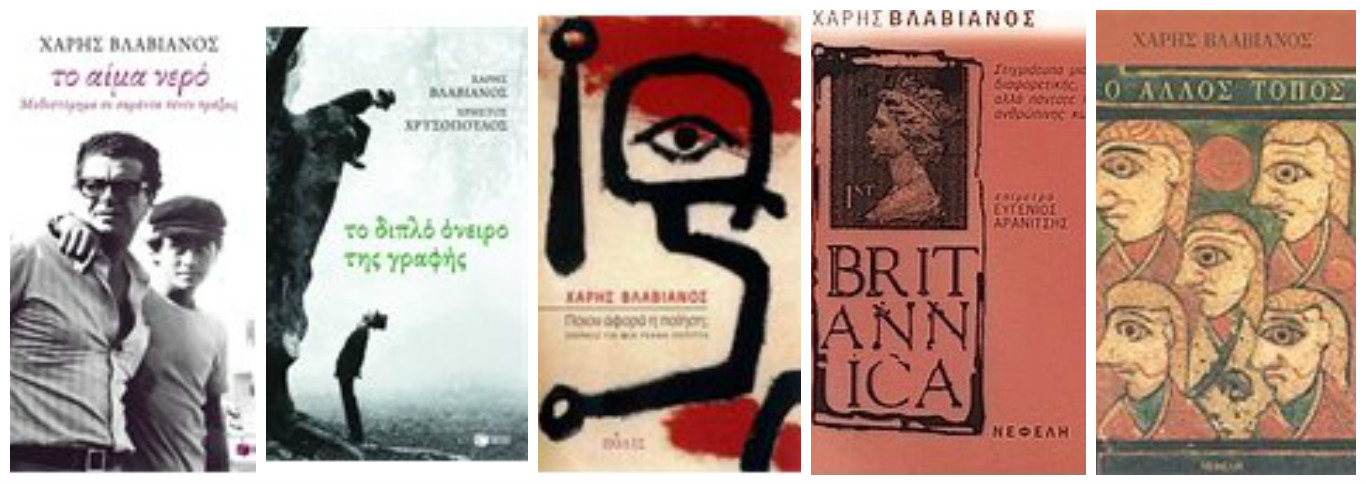
Today this is not the case. That’s why we have all these creative writing programs, which of course are very tricky because if people go to these writing programs – and I teach seminars like that myself – and they think that you take ten sessions and then become a writer, they are mistaken. In fact, in most of my seminars, what I do is that we read important and challenging texts. It’s mostly a seminar on reading and unlocking texts and seeing how a poem works. A poem is like a machine made of words. How does it work? You have to realize how it works. And I’ve discovered very soon, when I started these seminars, that most people hadn’t read much. So I switched and made the seminar mostly a creative reading seminar rather than a writing one.
*Interview by Athina Rossoglou
TAGS: LITERATURE & BOOKS | READING GREECE

